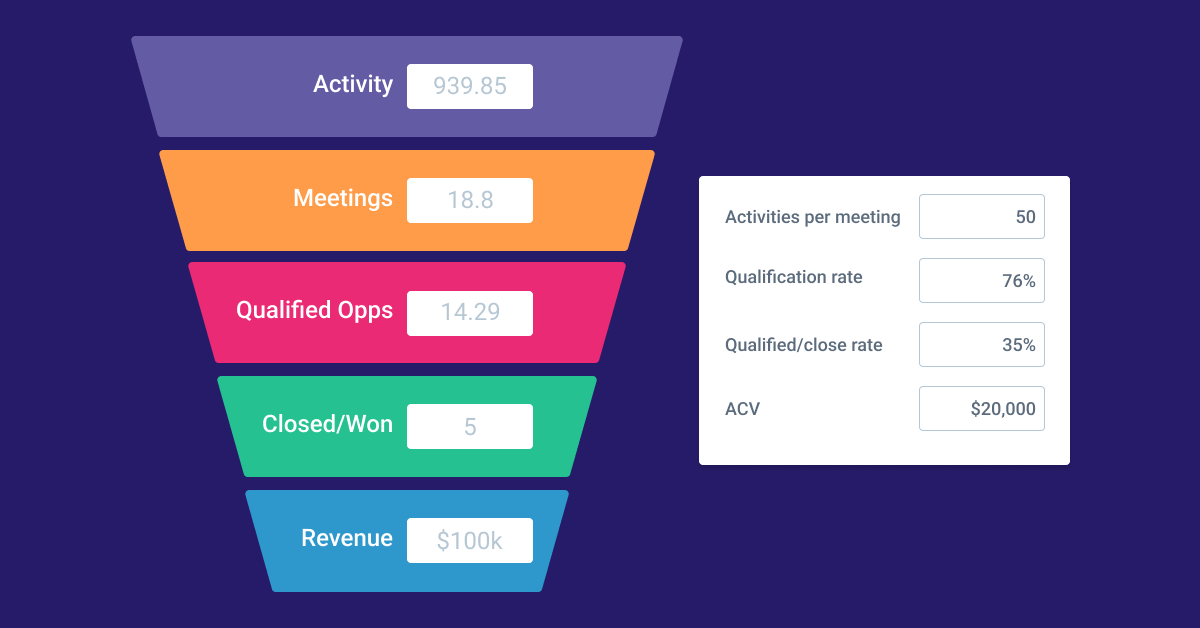This is a guest blog written by our friends at Weflow.
When your sales team is struggling to hit performance metrics, one of the possible culprits is a lack of transparency.
A transparency problem isn’t always obvious. It might look like missed team goals, people using old scripts, or a lack of clarity on team priorities.
As a sales leader, you find it frustrating when your sales reps aren’t on the same page — but it’s also your job to make sure that the information flows.
Sales teams with great transparency are more accountable. They have healthier cultures, better retention, and an easier time hitting their sales goals.
These things happen because a transparent team shares information freely and openly. There’s a higher level of trust, both between teammates and between sales reps and leadership. An environment like this squashes gossip in favor of honesty, and reps find it easier to ask for help.
Improving transparency in your team is a gradual process.
Here’s how to get started.
Try the most collaborative solution to manage, track and payout variable compensation. Calculate commissions and pay your team accurately, and on time.
Start TrialStart with top-down transparency
If you want your sales team to be transparent with you and with each other, the first step is for you to be transparent with them.
Top-down transparency takes courage and trust. Leaders often hesitate to share details with their teams, especially when the information isn’t ideal.
However, it’s important for your entire team to have some visibility into financial performance, company goals, and business outlooks. Remember that your sales team members are the people who can pull together to help you achieve tough goals, but they can only do that if they know it’s needed.
Senior leadership should regularly share updates on company performance and financial outlooks with the entire company.
From a department level, each team should have specific goals and performance metrics to track their progress. Sharing OKRs makes the progress toward these goals transparent. Plus, it gives every person a meaningful stake in the company’s success or failure. That’s a big motivator, especially for performance-driven salespeople.

Build a Sales Funnel
Use our free sales funnel resource to see how many meetings your team needs to book to hit quota.
Calculate NowMake accurate data accessible to everyone
You probably store a lot of data in your CRM or other sales software. All of that information can and should be visible to everyone on the team.
Don’t just look at team reports yourself and expect your sales reps to operate only in their own pipelines. Show your reps how the team is doing by making that data transparent. It will help them gauge the team’s performance, judge how close you are to team goals, and ultimately close more deals.
Keep in mind, though, that CRM data is notoriously inaccurate for most sales organizations. Updating a CRM like Salesforce is a manual process, and if you’re relying on reps to update those contact records on their own, your data is almost certainly incomplete.
You can use a tool like Weflow to automate data entry and keep your pipeline data current and accurate. Weflow automatically syncs your sales reps’ activities, including emails, meetings, and calls to Salesforce.
This ensures all relevant data ends up in your CRM instance. From there on, you can use Salesforce reporting tools to format and share the data with your team.
By automating the data flow and publicly displaying your team data, you’ll help motivate your team to keep their records up-to-date and use that information as a valuable sales tool.

Implement a sales leaderboard
One way to display team data effectively is with a sales leaderboard. Using a monitor or screen that’s visible in your office — or a Slack channel or link if your team is fully remote — the leaderboard is a smart way to create more accountability and celebrate wins.
To make your leaderboard as effective as possible, keep it updated either in real-time or on a regular cadence. Post the results somewhere highly visible and easy for everyone on the team to see.
Your leaders should be offered compelling rewards and incentives to help motivate people to strive for top performance. The recognition is nice, but that alone is probably not enough to motivate your whole team. Offer juicy rewards for top performance like cash bonuses, physical prizes, catered lunches, or other relevant perks.
Whatever reward system you choose, make sure that the rules are clear and that every team member knows exactly what to expect if they top the leaderboard. An overly complicated system can be demotivating instead, so keep it simple and transparent.
RevOps, sales leaders, and finance teams use our free tool to ensure reps’ on-target earnings and quotas line up with industry standards. Customize plans with accelerators, bonuses, and more, by adjusting 9 variables.
Build a Comp PlanMake compensation plans transparent
Just like your leaderboard system will be less effective if it’s confusing, your compensation structure can also be a barrier to performance if you’re not transparent in how you pay.
From keeping your hourly rates a secret to failing to publish your quota-based bonus structure, a lack of transparency in pay seriously harms your sales team’s trust in you.
It’s hard to push for better performance if you suspect that your coworker makes more money for the same amount of work.
Transparency in compensation forces you to offer equal pay to employees who share the same job title and seniority level. This eliminates the risk of a team member finding out that someone makes more than they do, fostering resentment and distrust.
It also requires a clear, structured bonus plan that keeps you and your entire team accountable for performance-based pay.
This might sound like a scary change to make, but consider this:
For junior representatives who haven’t yet moved up the ranks, they can see exactly what kind of earning power they’ll have if they meet their goals and stick with your company. This is a way more attractive option than shopping around for a different entry-level sales job, so it’s great for employee retention.
More senior team members know that their pay is based entirely on their performance — not their relationship with the boss, their negotiation skills, or their popularity. If they want to earn more, they know exactly how to do it.
You can quickly improve your compensation transparency with tools like QuotaPath.
QuotaPath allows you to design custom compensation plans to suit your team structure and goals.
It streamlines the calculation and tracking of commissions to save you time, and your team knows that those calculations are fair because they can easily see the payment structures for themselves. Plus, it automates payments.
Boost transparency to boost performance
Building a transparent sales team can feel like a challenge, but it’s well worth the effort. As you improve transparency, you also boost trust and give your sales reps the tools they need to perform at their best.
Remember, transparency starts at the top. Leadership must be the first and most consistent practitioners, then your reps will gradually start to follow your example as they build trust.
Stick with it. You’ll be glad you did.
About the author:
Catherine Solbrig is a well-rounded content marketer with more than 12 years of experience. Her work has been published by Automattic, GoDaddy, AOL, the American Bar Association, and many more high-tech companies.



